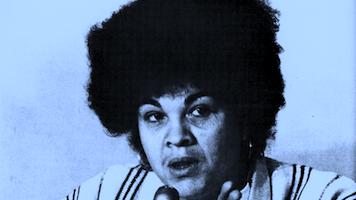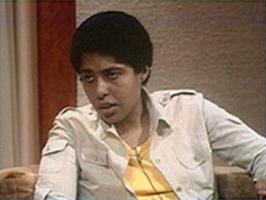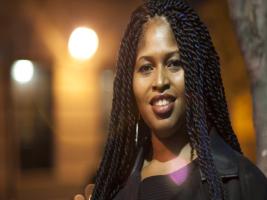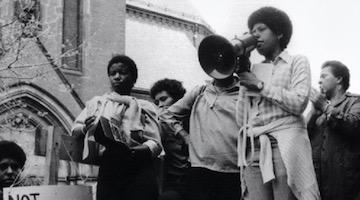The liberal misinterpretation of identity politics, that favors progressive neoliberals, has dismissed the innate radicalism of a workers centered Black feminism.
“’Advances’ of Black women can not be isolated from their class position any more than the advances of the Black man can.”
“Although we are in essential agreement with Marx’s theory as it applied to the very specific economic relationships he analyzed, we know that his analysis must be extended further in order for us to understand our specific economic situation as Black women.”—the Combahee River Collective Statement, 1977
“The concept of the simultaneity of oppression is still the crux of a Black feminist understanding of political reality and, I believe, one of the most significant ideological contributions of Black feminist thought.”—Black feminist and scholar Barbara Smith, 1983
The situational systematic position of Black women, particularly in the US, has long been explained throughout the decades whether it has been called “triple oppression,” “double jeopardy,” or more notably, “intersectionality.” While the mode of thought that has progressed Black feminism varies in political tendency, they all acknowledge the axis of oppressions that exist when Black and a woman.
As this acknowledgement began to re-emerge in the last decade due, in part, to social media’s revival of [forgotten] Black feminist scholarship, an undialectical approach to what Black feminism is, as a political ideology and praxis, has also emerged. This has invited strong, and oftentimes valid, but misdirected criticisms.
Admittedly, I’ve made reactionary remarks, in bad faith, rejecting the criticisms of “Black feminism.” It is unfair of me to determine the context in which (cis- hetero male) criticisms of Black feminism derives from a hatred of Black women(hood). As a materialist, I understand that criticisms of Black feminism are often criticisms of a specific and more prominent interpretation of Black feminism. Those criticisms do not take into account, perhaps conveniently, the various forms Black feminism takes on or addresses what womanism actually is.
“An undialectical approach to what Black feminism is, as a political ideology and praxis, has also emerged.”
These criticisms are addressing Black women who hold a liberal feminist political ideology —- one centered in individualist Western issues, dependent on a carceral state as a solvent and find no use in a true and organic internationalist approach to feminism. Liberal feminist politics practiced by Black women redefine womanism as the antithesis to “white feminism,” centers “cancelling” and a host of other fallacious actions that do not address, in praxis, Black Women’s specific issues entangled in the underclass dynamics of not just race and class but gender [binaries].
This practice, seen and praised online, also fills up academic spaces. This is what criticisms of Black feminism depict as the entirety of Black feminist theory and the tenets it derives from. Not only does that make the criticisms of Black feminism shortsighted, but an invalidation of Black feminism (and womanism) as a political ideology derails any semblance of liberation.
Blanket critique, in this instance, is used as a way to explain one’s circumstance simply because it’s easier to do so. Instead of attacking neoliberalism and neocolonialism, the primary contradictions directly responsible for both the international and domestic war waged on Black people (particularly and blatantly so, Black men), the critics of Black feminism choose to believe that it is Black women’s advances through repressive conditions that assists in keeping “the Black man down” thus leaving the Black family structure vulnerable.
However, “advances” of Black women can not be isolated from their class position any more than the advances of the Black man can. What most (emotionally charged) criticisms of Black feminism do is reject class character. Class character helps us understand our material position within this system.
“The critics of Black feminism choose to believe that it is Black women’s advances that assists in keeping ‘the Black man down.’”
In Marxist theory, class character is determined by the two main classes in capitalist stage production, the bourgeoisie and the proletariat. Simply put, the haves and the have nots. Black people in the US are racially and systematically kept from owning the means of production, rarely making us the capitalists, but oftentimes the bootlickers. The current class character divide of Black people in the US often falls under the petite bourgeoisie or the rising (lumpen)proletariat— the middle class and the class locked out of employment opportunities.
As evidenced by online personalities and academia, many who speak on behalf of Black feminist theory and womanism (or attempt to gatekeep it) either come from a petite bourgeoisie background or have aligned with the petite bourgeoisie class through professional advances. This has afforded them certain opportunities, lived experiences and point of views. This class of people inevitably hinder the advancement of our liberation struggle as a whole because their class character is tied to voting, how they vote and what they vote for. Since feminism has been watered down to a merely progressive political ideology and not the radical movement that Black feminist theorists had argued for, these women are most likely to advocate for and vote in favor of the democratic party that promises both reforms and equality. But as we know, these are and have always been empty promises.
“Feminism has been watered down to a merely progressive political ideology and not the radical movement that Black feminist theorists had argued for.”
Instead of progress, with the help of the petite bourgeoisie class that have aspirations of becoming the bourgeoisie, neoliberal policies are ushered in that directly harm Black communities, both domestic and international. The aspirations of the petite bourgeoisie are directly in conflict with the majority of Black people in the US. What is unfortunate is that criticisms of Black feminism do not address class character as if to say all Black people come from the exact same class position, making Black feminism especially dangerous to Black communities because it only seeks to advance Black women.
This logic and reasoning is not only intellectually lazy, it ignores the framework and scholarship that was specific to poor Black working class conditions written by Black women like Claudia Jones, Frances Beal and others who understood that liberating Black women from the triple axis of oppression (class, race, gender) brought on by capitalism would liberate all Black people. The liberal misinterpretation of identity politics, that favors progressive neoliberals, has dismissed the innate radicalism that is a workers centered Black feminism, or more specifically womanism.
The capitalist system within the US defines manhood based on inconsequential things like “good job,” “lots of money,” “fancy cars,” etc. The Liberal feminism of prominent online personalities leans into this definition, thus upholding the gender binary, allowing worth to be determined and categorized by labor and productivity. This is the practice critics of Black feminism highlight to prove their points.
As noted earlier, the majority of Black people in the US are not petite bourgeoisie. When there is a group of people claiming an ideology in the most reactionary way, pushing capitalist defined examples of “worth,” it makes sense that it invites resentment and rejection. Circumstantially, Black men (and boys) suffer under the carceral state that protects capitalist interests. Black men find themselves locked out of employment opportunities and with their fates tied to criminalization. A patriarchal society that falls short of the capitalist definition of “worth” will understandably push back against “feminism” and label it the enemy because punching down is always easier than introspection of our conditions.
“Black men find themselves locked out of employment opportunities and with their fates tied to criminalization.”
The mainstream liberal feminism embraced by some Black women, which has proven to be more about sustaining platforms (and jobs) than liberating communities, is not the sum and the whole of the many political tendencies of Black feminist theory. And while these liberal Black women may quote the radical Black women that came before them, they do not study or follow their actual teachings any more than the people who object it entirely.
Black feminist theory has been informed by many scholarships that give rise to particular experiences that Black women face by understanding our position in relation to sexism, class oppression, and racism. It acknowledges that Black women are positioned within structures of power in fundamentally different ways than white women. Slavery and racial segregation in the US places Black women in a unique position within the mainstream “women’s movement.”
During the Great Depression and Jim Crow era of the 1950s, Black women were mainly relegated to low-paying jobs as domestic servants. Unlike Black men, Black women, although primary organizers for workers rights, were locked out of labor organizations because domestic work was not an acknowledged form of labor.” This inevitably consigned Black women to “victimhood and exclusion from the normal social networks and labor legislation that benefited other workers; thus continuing their super exploitation,” as Claudia Jones noted.
As Black women continue to expand beyond domestic labor and garner the proverbial “seats at the table,” which does not come without compromise, they’ve somehow managed to forget the domestic and low wage Black [women] workers. They’ve somehow dismissed or ignored that what’s compromised are their Black proletariat “sisters” (both cis and Trans) and those left dependent upon survivor economics. This is where the contradictions in Black feminism presents itself.
“While liberal Black women may quote the radical Black women that came before them, they do not study or follow their actual teachings.”
When platforms become bigger than ideology, messages become convoluted and distorted. The misunderstanding of a radical theory informed by Black women who were/are revolutionary socialists and Marxists has been turned into a reactionary liberal form of Black feminism rooted in the carceral state with worth based on productivity and labor. Defining worth in this way has dire intracommunal effects as exemplified through domestic and street violence. How we currently deal with both acts of violence in our communities under the guise of “Protect [cis and Trans] Black Women” often results in advocating for a police state.
We must RE CENTER the radical teachings of our Black foremothers who did not dismiss Black men as “the weakest links,” but challenged them, struggled with them as a direct protest of our collective disposability. We must RE CENTER the inclusive ideology that welcomes and protects our Trans sibs. We must RE CENTER the working class and denounce individualism. We must RE CENTER internationalism. We MUST understand that working class Black women are the heartbeats of the community. So long as Black women continue struggle, the Black community will continue to struggle, too.
Black feminism and more specifically womanism, are restorative ideologies, not reactionary. Black feminist theory is informed by the absolute need to dismantle a capitalist system that upholds a gender binary that places Black women disproportionately in the ranks of the poor working class. Understanding it requires recognizing that tackling the contradictions of race and class must hold a central position in Black Women’s liberation. Only then will it be useful to the liberation of ALL oppressed by the system.
This article previously appeared on Ms. Caines’ website, HoodCommunist.
COMMENTS?
Please join the conversation on Black Agenda Report's Facebook page at http://facebook.com/blackagendareport
Or, you can comment by emailing us at comments@blackagendareport.com


















